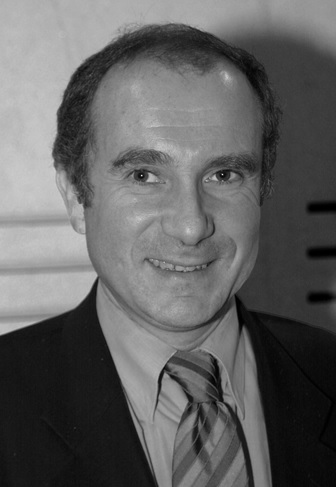« How to bring digital innovation to university life ? » This is a question that has been on Gilles’ mind for the last several years. Today, universities are eager to improve their services to students, researchers, faculty, staff, businesses, as well as their neighbors. And, he selected several areas where there’s much to gain.
They include:
- Creating services to students, with e-Care
- Improving relationships with business (e-Incubator, Social Network, …)
- Creating massive open online courses and e.learning centers
I/ Gilles’ bio

Gilles brings his experience in leading digital transformation in banks, including Citibank, HSBC, Crédit Agricole, Caixa, Intesa. He has also spearheaded digital transformation in Telecom and entertainment companies, such as Orange, Time Warner, Disneyland and TF1. Having worked in the US, both as a consultant (Accenture and Roland Berger) and as a Senior Leader, Gilles understands both strategic issues and is able to oversee implementation.
II/ Digital transformation can help French universities gain from MOOC
First, massive open online courses (MOOC) is challenging because many English-speaking universities have already made major investments. This leaves French universities with a comparatively smaller segment to address, given that they appear to be late entrants in a market which has already been preempted by English-speaking universities.
But, at the same time, French speaking universities can appeal to French-speaking countries in Europe, in northern or black Africa, and North America (Canada, …), and Southeast Asia (Vietnam, …), and in the Middle East (Lebanon, …).
So there is a potential for creating French speaking MOOCs that real and yet, at the same time, MOOCs are creating resistance on the part of professors mostly because there is still a very understanding of what it takes to create a successful MOOC. Plus, managing directors of universities still need to explain what professors can get out of reading a MOOC, which is a time-consuming activity.
III/ Digital transformation can help French universities improve their service offerings to students, professors, researchers and staff
Second of all, services to students, professors, doctors/researchers or staff are another area of challenge. This is due the fact that universities have a difficulty in understanding the needs of their students, professors, researchers/doctors or staff.
So, creating a digital platform that is designed to optimize the daily lives of students or other segments really needs to start with having a clear understanding of what students or other segments need on a daily basis.
IV/ Digital transformation can help French universities improve its relationships with businesses
Finally, improving relationships with businesses is another area which could benefit from digital innovations. Leading French companies, whether it’s Total, l’Oréal, BNP Paribas or Publicis, need a diversified workforce. This diversified workforce ought to bringing diversified competencies in order to create new products, which can appeal both to existing customers and new segments of customers. And, recruiting a diversified workforce, means recruiting people that have been through very different kinds of forces.
Think about Steve Jobs who once said that Apple was the only technological company that combines humanities with technology. This is what French companies want to emulate. How can digital transformation make this kind of talent abundant?
V/ How to bring digital innovations to university lifeDigital transformation can help French universities find new revenue streams
Before our discussion ended, we also talk about how French universities could find new revenue streams through digital transformation. What if French universities were able to create summer camps that somehow, would use digital tools to enhance learning?
Suddenly, a new market would open, one that would not be strained by geography. As Paris is the most visited city in the world, French universities have much to gain in creating digital bridges.
Further readings:
- For a discussion on how massive open online courses will change the way we learn and teach, please refer to this video of Clayton Christensen
- For critique of massive open online courses, please refer to this New York Times article
for presentation of that in a big presses reforms to the French universities, please refer here - For another take on e-Education, please refer to Rémi Bollack’s ideas, here
- For an original analysis of MOOCs, please refer here
- For an in-depth analysis of MOOCs, please refer to this blog
- For a blog post predicting the end of MOOCs, please refer here

[…] II/ Digital transformation can help French universities gain from MOOC First, massive open online courses (MOOC) is challenging because many English-speaking universities have already made major investments. This leaves French universities with a comparatively smaller segment to address, given that they appear to be late entrants in a market which has already been preempted by …read more […]
[…] Pour un exposé des innovations digitales dans le cadre de la vie universitaire, se diriger vers ce billet. […]
[…] de nos sociétés et des innovations numériques dans la vie universitaire, consulter ce billet (en […]